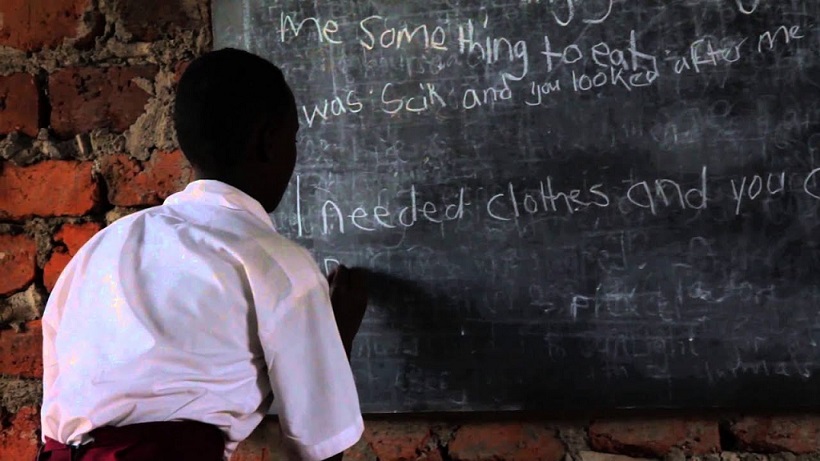For I was hungry and you gave me something to eat, I was thirsty and you gave me something to drink, I was a stranger and you invited me in, I needed clothes and you clothed me, I was sick and you looked after me, I was in prison and you came to visit me.~Matthew 25:35-36
“I want to kill the person that did this to me,” he seethed, as he pointed to the jagged scar line across his head.
“Sounds as if you’re pretty angry about it,” I said.
“Yes, I am. I’m going to kill the guy as soon as he gets out of jail in three months.”
“How are you going to kill him?” I asked.
“I don’t know yet.”
“Oh, so you don’t have a plan.”
“No.”
Then I saw him starting to fight back the tears as he began to relate his story. Three years before he had been hit violently in the head resulting in surgery on his skull. Ever since then he had trouble with his memory. He lost his job because he could not function well. He filed for disability, but was turned down.
Finally he was receiving only $127 a month for living expenses. He could not afford a place to live and was refused housing even in shelters because of a shady past. He had no family except an aunt he was not close to. He was now homeless and wandering the streets. He smoked because he was stressed and depressed about his situation. He had been free from alcohol and drugs for a long time and had tried to quit smoking, but could not. The tears quietly began flowing down his face.
Looking at the scar that ran across the top of his head, I imagined what it would have felt like to be struck in the head or to live on $127 a month. His anger was really an expression of a deep hurt and sadness. No wonder he was depressed. No wonder he smoked to relieve some of the heavy burden, even if it was a temporary fix. My heart went out to him.
I was taught to help people stop smoking so they would be healthier and to encourage them to rely on a Higher Power to help them quit tobacco. But how could I tell him to depend on God when this God supposedly did not even provide his basic needs? How could I preach to him to stop smoking when he was a broken man inside and the only way he knew how to fix the brokenness was to smoke?
I realized that to really heal this man I had to start with his greatest need while considering the bigger picture for him. As a team we referred him to those who could help him get back on his feet. I could see total relief on his face. Yes, God spoke to me that day. He said,”I needed clothes and you clothed me…” And I finally understood.
-Dipika Pandit, LLUSM class of 2009, is a family practitioner in Loma Linda, California. She was the 2009 recipient of the Wil Alexander Whole Person Care Award.
